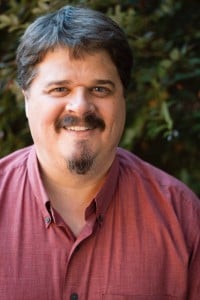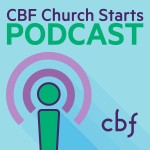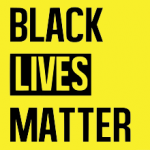By Bert Montgomery

I was raised a member of a religious minority: I grew up Baptist in the overwhelmingly Catholic Louisiana. Forty-nine states are divided into counties. Louisiana is divided into parishes, i.e. religious (Catholic) districts.
In Starkville alone it seems you can’t drive more than a few blocks without finding some kind of Baptist church. But when I left St. Charles Parish in 1986 (the entire east bank side the parish along the Mississippi River, which included at least five towns), there were a total of two Baptist churches that I knew of. One had less than 25 active members; the other maybe 75-100. Three towns separated them.
Mrs. Blair was of my parents’ generation, and also grew up Baptist in a rural Louisiana parish. She used to sit on the school bus after it arrived at the public school each morning, ridiculed by the bus driver, teachers, her classmates and friends for not participating in the school-wide morning prayers – always distinctly Catholic and following Catholic rituals.
Catholic prayers and the Catholic Bible are somewhat different than general Protestant prayers and the general Protestant Bible. Of course, that’s not all the Catholics’ fault; they had the Christian biblical canon first, and then we Protestants came along and removed several books we decided weren’t inspired by the Spirit of God. It’s funny, because as a young Baptist I heard leaders quoting Revelation 22:18 and warning against the evils of Catholicism because “they” dared add books and writings to “God’s infallible Word.”
Unlike Mrs. Blair, by the time I was riding the school bus, the public schools were not mandating Catholic readings or prayers in the schools. My Catholic neighbors, friends, teachers, school administrators, and civic officials were very generous and kind and never treated non-Catholics like unwanted outsiders. I am thankful for religious freedom which guaranteed that a member of the religious minority like me could go to a public school and not be expected to worship, pray, or give lip-service to the dominant religious tradition.
Back in the 1800s, though, violent riots erupted in New York, Boston, Philadelphia and more. Catholic immigrants came seeking the promised liberties and opportunities, but instead found persecution from Protestants – the dominant religious tradition controlling the local governments. Two of the primary reasons justifying the murdering, vandalizing, and razing of churches were the Bible and school prayer: the Protestants didn’t like the Catholic children bringing their “added-to” Bibles and their different types of prayers into the schools where Protestant Bibles were read and Protestant prayers were prayed openly, officially, daily.
This is why I am so passionate about the important Baptist gift to our nation: the separation of church and state.
Noted Baptist historian (and fine Mississippi boy) Walter Shurden describes it like this: “To be authentic, faith must be free. Genuine faith cannot be forced or denied by the state.”
It was a Baptist preacher from Massachusetts named John Leland who led a movement of Baptists, then a persecuted and alienated minority in the colonies, and directly influenced George Washington, James Madison, and many others. Leland and his ideas particularly influenced Madison who introduced the Bill of Rights into the U.S. Constitution, including the First Amendment: “Congress shall make no law respecting an establishment of religion, or prohibiting the free exercise thereof…”
Without the passionate work of 18th Century Baptists like Roger Williams, Obadiah Holmes, Isaac Backus, and John Leland, the variety of state religious groups (led by Puritans, Anglicans, and other Christian variations) would have continued to restrict and punish everyone who dared not give at least lip service to their particular legislated beliefs.
Baptists were a distrusted and persecuted bunch in early America because Baptists emphasized soul freedom: that “inalienable right and responsibility of every person to deal with God without the imposition of creed, the interference of clergy, or the intervention of civil government.”
It is now 2017, not 1776. Baptists are now in the majority, and many of us have forgotten that we were once the religious minority.
My Baptist ancestors knew firsthand what it was like to live under the political rule of other Christians who didn’t like the way they baptized or prayed or received Communion or insisted upon individual responsibility to God.
My Baptist ancestors knew how unpleasant it is to live under the intolerance that develops whenever church becomes state and state becomes church.
And, my Baptist ancestors sought to do to others what they would have done to them – respect freedom of conscience and religious liberty.
As I celebrated our nation’s great promises and ideals this past Fourth of July, I gave thanks for the separation of church and state which promised me freedom to practice my Baptist tradition in Catholic Louisiana. And, I recommitted myself to fighting for and protecting that same freedom for all others: freedom to be Catholic, or Methodist, or Presbyterian, or Church of God in Christ, or Morman, or Jewish, or Buddhist, or Hindu, or Muslim, and the freedom to not believe or not practice any religion whatsoever. It’s a radical concept of freedom, and a radical gift from the once-radical on-the-margins Baptists. It’s a shame so many of us Baptists have forgotten it.
Rev. Bert Montgomery pastors University Baptist Church in Starkville, teaches religion and sociology at MSU and can be reached at [email protected].
Note: The views expressed here in columns and commentaries are solely those of the authors.
Interested in writing for CBF at Patheos? Submit your column idea to CBF Communications Director Aaron Weaver at [email protected].










